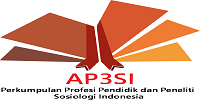The ex-PKI Political Prisoners Motive to Produce the Memories of 1965/66 Mass Violence in West Sumatra
DOI:
https://doi.org/10.24036/scs.v8i2.365Keywords:
social memory, ex-PKI political prisoners, G30SAbstract
This article analyses ex-PKI political prisoners' motive to produce their memory about mass violence and detention in 1965/66. They joined the YPKP (Yayasan Penelitian Korban Pembunuhan/Institute for Research on the victims 1965/65). In this organization, they expect justice for what they experienced in 1965. This article uses qualitative research. We acquire the data by interview and literature study. There are six interviewers five of them are ex-PKI political prisoners, and one is the chairman of the YPKP branch in West Sumatra. Besides the interview, we also use relevant books, articles, newspapers, archives, and web pages. We employ the social memory approach to analyse this subject. The ex-PKI political prisoners' memory of violence had shaped the same vision between them to produce the memories of what they have experienced during 1965/66. Therefore, the old ex-political prisoners expected to straighten history to reconcile the government and the victims. They attempt to counter the state narration that mentions they had a part in the 30 September 1965 Movement to hold the coup and prove that the state victimized them for decades. Along with the straightened history, there are two primary purposes in this reconciliation they are fighting for; 1) Confession of the state that human rights violations had taken place; 2) Recovery and rehabilitation for those who had become the victim of human rights violations.











